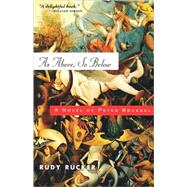
Note: Supplemental materials are not guaranteed with Rental or Used book purchases.
Purchase Benefits
What is included with this book?
| 1. MOUNTAIN LANDSCAPE | |||||
|
11 | (16) | |||
| 2. THE TOWER OF BABEL | |||||
|
27 | (22) | |||
| 3. THE BATTLE OF CARNIVAL AND LENT | |||||
|
49 | (18) | |||
| 4. THE FALL OF ICARUS | |||||
|
67 | (14) | |||
| 5. LUXURIA | |||||
|
81 | (24) | |||
| 6. THE PEASANT WEDDING | |||||
|
105 | (26) | |||
| 7. THE PARABLE OF THE BLIND | |||||
|
131 | (18) | |||
| 8. DULLE GRIET | |||||
|
149 | (22) | |||
| 9. THE SERMON OF JOHN THE BAPTIST | |||||
|
171 | (18) | |||
| 10. THE PEASANT AND THE BIRDSNESTER | |||||
|
189 | (20) | |||
| 11. THE ADORATION OF THE KINGS | |||||
|
209 | (20) | |||
| 12. THE HUNTERS IN THE SNOW | |||||
|
229 | (20) | |||
| 13. THE BEGGARS | |||||
|
249 | (20) | |||
| 14. LAZY LUSCIOUSLAND | |||||
|
269 | (18) | |||
| 15. THE BEEKEEPERS | |||||
|
287 | (20) | |||
| 16. THE MAGPIE ON THE GALLOWS | |||||
|
307 | (12) | |||
| ACKNOWLEDGMENTS | 319 |
The New copy of this book will include any supplemental materials advertised. Please check the title of the book to determine if it should include any access cards, study guides, lab manuals, CDs, etc.
The Used, Rental and eBook copies of this book are not guaranteed to include any supplemental materials. Typically, only the book itself is included. This is true even if the title states it includes any access cards, study guides, lab manuals, CDs, etc.
Excerpted from As above, So Below: A Novel of Peter Bruegel by Rudy Rucker
All rights reserved by the original copyright owners. Excerpts are provided for display purposes only and may not be reproduced, reprinted or distributed without the written permission of the publisher.